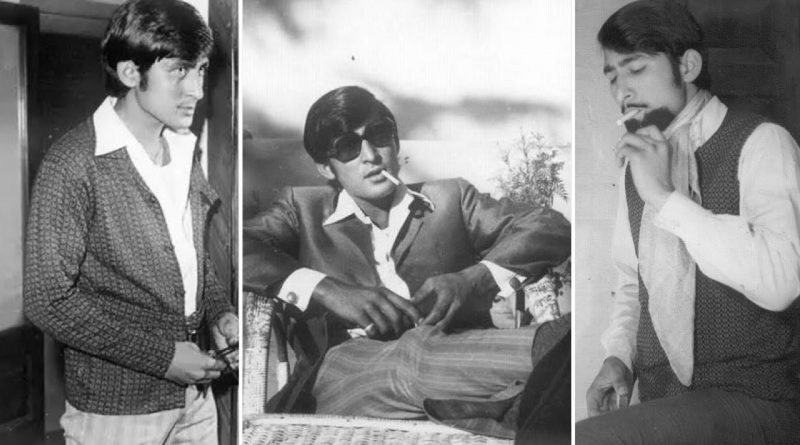The Black Tiger: India’s Most Daring Spy Who Disappeared into Pakistan
This wasn’t the clean espionage of Hollywood—it was messy, lonely, and treacherous.
He was just 23 years old when he vanished from India—not into thin air, but into a role so consuming, so dangerous, that it would take everything from him, even his name. He resurfaced across the border in Pakistan as Nabi Ahmed Shakir, a young Muslim law student from Islamabad.
Behind that façade was Ravinder Kaushik, a deeply trained Indian intelligence operative, who would go on to penetrate the Pakistani Army, rise to the rank of Major, and live a double life of immeasurable risk—for a country that would eventually forget him.
Today, as borderlines tighten and intelligence wars evolve into digital domains, Ravinder Kaushik’s human story rises from the pages of history as a haunting reminder: the greatest spies aren’t found in surveillance rooms or drone footage. They walk among enemies, living lies to protect lives.
From Spotlight to Shadows
Born on April 11, 1952, in Sri Ganganagar, Rajasthan, Kaushik was no ordinary boy. A gifted actor and orator, he made waves on the theatre circuit during college. At SD Bihani College, his moving mono-act of an Indian soldier withstanding enemy torture caught the attention of RAW recruiters. It wasn’t just a performance. It was prophecy.
In 1973, RAW—India’s external intelligence agency—recruited the 21-year-old and subjected him to a rigorous two-year training regime. He learned Urdu, Islamic customs, Pakistani etiquette, and the subtle mechanics of espionage. The transformation was so complete that he underwent circumcision to pass as a true Muslim. And with that, Ravinder Kaushik ceased to exist.
A Life in Enemy Ranks
Kaushik arrived in Pakistan in 1975, posing as Nabi Ahmed Shakir. He enrolled in Karachi University to study law, building a convincing civilian front. Soon after, his academic record earned him a place in the Pakistani Army’s Military Accounts Department—a move that stunned even the most hardened RAW veterans.
By 1979, he was a Major—the first Indian agent to infiltrate the Pakistani military at such a level. He married a local woman, Amanat, and had a child, solidifying his cover. But what his family in Pakistan never knew was that every day, he lived in silent service to India, secretly sending classified troop positions, war strategies, and operational blueprints across the border.
For four years, from 1979 to 1983, his reports helped India thwart potential wars and cross-border threats, saving untold numbers of civilian and military lives. So vital was his intelligence that Prime Minister Indira Gandhi herself reportedly called him “The Black Tiger.”
But even the perfect spy can only balance for so long on a wire stretched over fire. Kaushik’s deception wasn’t digital—it was human. He prayed like a Muslim, celebrated Eid, played cricket with Pakistani officers, and kept fasts during Ramadan. His intelligence dispatches were transmitted through invisible ink, dead drops, and relays via agents in Kuwait and Dubai.
This wasn’t the clean espionage of Hollywood—it was messy, lonely, and treacherous. In an age with no GPS trackers or secure satellite phones, one misstep meant death.
And that step came in 1983.
RAW sent another agent, Inyat Masih, into Pakistan to re-establish contact with Kaushik. But Masih was caught, and under severe torture by ISI, he revealed Kaushik’s identity. A trap was set. Believing Masih’s ruse, Kaushik walked straight into it.
He was arrested instantly.
Torture, Silence, and Prison Walls
For the next two years, Kaushik was kept in Sialkot under intense interrogation. He was tortured—physically and mentally. But he never broke. He never betrayed another name, another mission.
In 1985, he was sentenced to death, but the Pakistani Supreme Court commuted it to life imprisonment. He was shuffled between prisons—Sialkot, Kot Lakhpat, Mianwali—slowly fading behind iron gates.
His only connection to the outside world came through smuggled letters to his family in India. In one of them, he bitterly wrote: “Had I been an American, I would have been out of this jail in three days.”
But India was silent. No rescue mission. No diplomatic plea. Only a whisper of gratitude hidden behind red-taped silence.
In November 2001, after 16 years of suffering, Kaushik died in Mianwali Jail—from tuberculosis and heart disease. No last rites. No coffin. He was buried anonymously inside prison walls, forgotten by both the land he served and the one he infiltrated.
Why Ravinder Kaushik Matters Today
His story inspired films like Ek Tha Tiger and Romeo Akbar Walter. But none bore his name in the credits. None sought permission from his family. Even here, he remained a ghost—honored in shadows, yet denied in daylight.
Within RAW circles, he is still legend. Yet the public memory barely stirs when his name is spoken. No roads, no medals, no memorials.
What then, is the value of sacrifice, if not remembered?
His story isn’t just about India or Pakistan. It’s about the human price of patriotism, the emotional toll of espionage, and the invisible wars that shape nations long before formal declarations.
In an era of artificial intelligence and cyberwarfare, Kaushik’s legacy reminds us: spies are still flesh and blood. They love, cry, ache, and break—but never on paper. Only in prison cells, through ink-smudged letters, and whispered names.
Ravinder Kaushik didn’t just serve India. He became the border. Every day he lived in Pakistan was a day India remained one step ahead. Yet, when he needed a voice, he heard none.
We owe him more than silence.
It is time India writes his name in textbooks. It is time children learn that freedom sometimes wears enemy uniforms. That sometimes, the greatest patriots are those we never know existed.
May we say his name louder now: Ravinder Kaushik. May we salute the man who became The Black Tiger—and gave his roar in silence.



